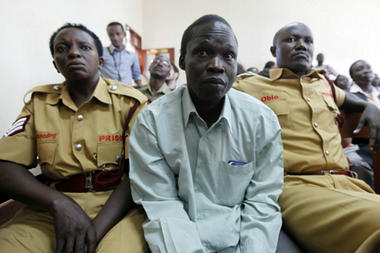Ibrahim Musana, also known as Pressure24/7, faced the Buganda Road Chief Magistrate, Ronald Kayizzi, on February 23, 2024, seeking bail. However, his request was denied on the grounds that he failed to provide convincing evidence of a fixed place of residence.
Musana, a vlogger accused of spearheading a campaign to insult the Kabaka of Buganda, Ronald Mutebi, President Museveni, and other government officials primarily through the social media platform TikTok, remains in Luzira Prison as he awaits further legal proceedings.
The decision to deny Musana bail was based on the court’s assessment that he could not adequately demonstrate a stable place of abode. Evidence presented during the hearing indicated that Musana resided in various locations, including Church Zone in Najjanankumbi, Kauga in Mukono, Kakoro in Budaka, and a hotel in Ntinda, where he had stayed for two months prior to his arrest by the police.
Musana faces charges of promoting hate speech and spreading malicious information, allegations he vehemently denies.
Buganda Road Chief Magistrate Ronald Kayizzi cited legal precedent in his ruling, emphasizing that an applicant without a fixed place of abode and lacking substantial sureties cannot be granted bail. He expressed concerns that releasing Musana on bail could pose a risk, referring to the case of Francis Onebe Vs Uganda. As a result, the bail application was rejected, and Musana was remanded in custody until March 26, the date set for the next mention of the case.
Prosecutor Richard Birivumbuka opposed Musana’s bail application, highlighting the potential risk that Musana, as the administrator of his TikTok account, might delete crucial videos considered as key evidence by the prosecution.
The case underscores the growing significance of social media platforms like TikTok in shaping public discourse and the legal implications that arise from the misuse of such platforms to spread hate speech or defamatory content.
Musana’s situation highlights the complexities surrounding freedom of expression in the digital age and the challenges faced by authorities in regulating online content while balancing individual rights and societal interests.
As the case progresses, it raises broader questions about the responsibility of social media users and platforms in ensuring that online communication remains respectful, lawful, and conducive to constructive dialogue.




















